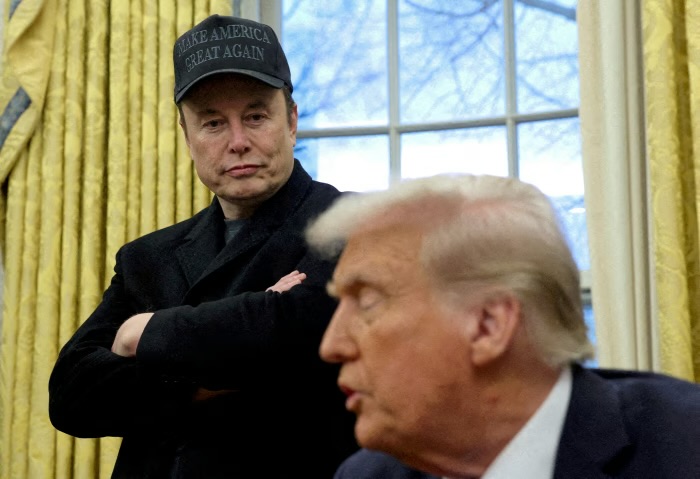Many mornings, the first thing I do is drink coffee out of my FTC mug. I worked at the FTC for three years. There, I helped the smartest career civil servants and political appointees I have ever met fight for the American people. They inspired me to see the law as a force for good and convinced me to go to law school. These days especially, that mug reminds me that good public servants can do good things in this government. The logo on that mug, the FTC’s winged flywheel, represents the role the FTC plays to ensure fairness in the American economy. No longer.
On Wednesday, that logo graced the top of a letter announcing an investigation into Media Matters for America. That investigation can only be fairly considered a politically motivated threat against an advocacy group opposed to the current administration. The investigation seems to concern Media Matters’ purportedly colluding with advertisers to deprive Elon Musk’s Twitter (renamed by Musk “X”) of ad revenue. The investigation seems prompted by Musk’s own suit about the issue—which is a blatant attempt to interfere with Media Matters’ First Amendment rights.
Needless to say, the investigation is without merit. Media Matters’ efforts to stop hate speech on Musk’s platform are in no way the type of horizontal collusion cognizable under the antitrust laws. Indeed, there is no mention of collusion, nor any claim of antitrust violation, in Musk’s original suit. (The suit instead claims that Media Matters interfered with Twitter’s contracts with advertisers, disparaged the quality of the platform.) The legality of such an attempt to coordinate a political boycott was settled long ago in NAACP v. Claiborne Hardware, a case concerning a boycott of racist businesses during the Civil Rights Era. Even the 5th Circuit has acknowledged the danger of this suit—specifically the potential for coercion or intimidation Musk’s discovery efforts to get the names of Media Matters’ donors poses. Under the first Trump administration, the Justice Department pursued a similar theory of coordination among carmakers that reached an accord with California over emission standards—a clear act of political lobbying exempted from antitrust scrutiny under the Noerr-Pennington doctrine. (The case was smartly withdrawn in the early days of the Biden administration.) Despite this background and clear caselaw, the FTC has decided to follow Musk’s vendetta and use its limited resources to pursue a claim with little-to-no chance of success.
Having worked in the agency recently, I am often asked by law school professors and classmates what I think will happen to antitrust enforcement at the FTC during the second Trump administration. Generally, I have said that I assume that not too much will change. The agency’s Republican leaders generally support strong enforcement—for example, Mark Meador is on the record as supportive of the Robinson-Patman Act (RPA), a law hated by big business. (To my disappointment, Meador voted to withdraw the FTC’s pending (meritorious and well-researched) RPA claim against PepsiCo.) In many areas of federal law enforcement, the presumption of regularity has already broken down for this administration. I hoped (though perhaps did not expect) the FTC would be different. That an agency with a history of independence would remain so. That is, after all, what happened during the first Trump administration.
I was wrong. Wednesday’s actions, likely directed by Chair Ferguson and his staff, indicate that the Chair of the FTC plans to use his agency as a weapon in Trump’s antidemocratic arsenal. Ferguson will, presumably in pursuit of Trump’s favor and Musk’s political war chest, sacrifice the goodwill the agency has built up with the judiciary and the public over the decades. I fear that after this administration is over, the agency where I started my career will be a shadow of what it once was—depleted of all its credibility, quality staff, and legitimacy. The Wall Steet Journal editorial page lambasted Lina Khan for “politicizing” antitrust by trying to dismantle concentrations of economic power—even though dismantling such concentrations was the original purpose of the FTC Act. Yet Khan’s FTC never once used its power to harass a political enemy. But that’s precisely what Ferguson’s FTC is doing.
The anti-monopoly community cannot continue to behave as if business-as-usual will continue at the FTC and DOJ. We cannot continue to segment anti-monopoly policy off from the rest of the Trump administration’s authoritarian actions. Under this administration, there is only one policy issue—democracy protection. We should do everything in our power to make sure that agencies like the FTC are not wielded as weapons of authoritarianism. If that means sacrificing the credibility of the agency I love, so be it.
Bryce Tuttle is a student at Stanford Law School. He previously worked in the office of FTC Commissioner Bedoya and in the Bureau of Competition.
